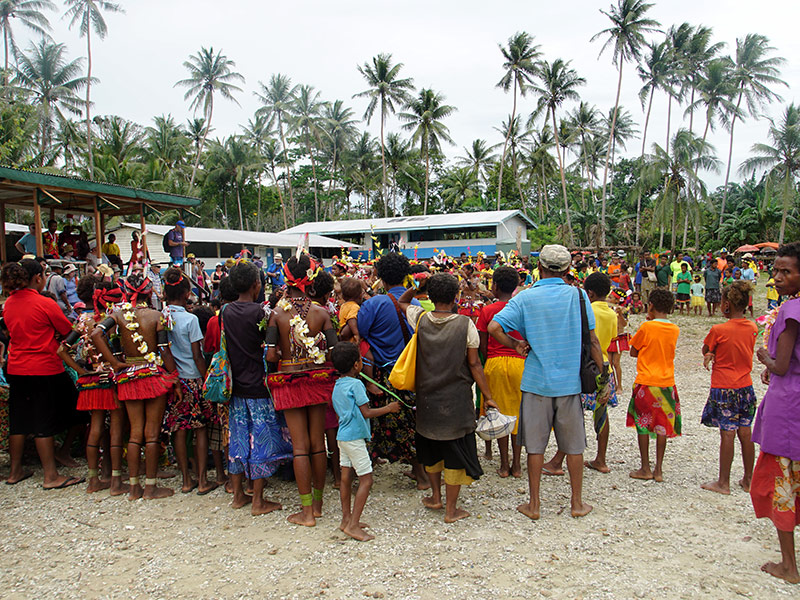A complex interplay of social, political, environmental, and economic factors fosters an environment where violence, oppression, poverty, human rights abuses, and state failure are more likely to occur.
Risks of Doing Business in High-Risk Contexts
High-risk contexts are inherently challenging operating environments for business. Businesses typically have low leverage over government actors, lack reliable data to inform decisions, and must deal with significant safety risks for their employees. While companies may face restrictive domestic legislation on some issues, they often operate within regulatory environments that are inconsistent with international human rights standards and provide insufficient guardrails to prevent human rights abuses. High levels of corruption increase the likelihood that businesses may engage in corruption themselves (e.g., payment of bribes, nepotism, money laundering). A country with weak rule of law may also have a low-functioning or corrupt judicial system, undermining the effectiveness of operational grievance mechanisms and blocking affected stakeholders from access to remedy. These challenges expose businesses and their investors to financial and reputational risks while increasing the likelihood of business complicity in human rights abuses.
Business activity in high-risk contexts is more likely to cause or contribute to human rights abuses or enable harm through business relationships.3 Corporate human rights abuses in such contexts may include land grabs and displacement, loss of jobs and livelihoods, environmental pollution and health impacts, excessive use of force by security personnel, and restrictions on speech and privacy. While these human rights impacts may occur at any point in the value chain, including supply chains, direct operations, and the use of products and services, the likelihood and severity of human rights impacts is likely to be greater in high-risk contexts, with many of the most severe impacts felt in the developing world.4
Business activity in high-risk contexts may exacerbate conflict, corruption, and instability. Conflict and human rights are closely linked: grievances over human rights violations can drive conflict, while violent conflict creates risks for additional human rights abuses. Business activity can exacerbate preexisting conflict and sociopolitical instability through various pathways, such as business model decisions,5 hiring and procurement practices,6 and partnerships with local entities. Business corruption may also lead to human rights abuses7 while weakening rule of law, enabling kleptocracy, and undermining economic development.
Despite these challenges, private sector investment in high-risk contexts is critical to peace, poverty alleviation, and the achievement of the Sustainable Development Goals,8 if done in a way that takes local political and social dynamics into account and respects internationally recognized human rights.9 Businesses that integrate human rights management into strategic decision-making and day-to-day operations will be more resilient to today’s global challenges10 while addressing some of the social, economic, and environmental drivers of conflict. Private sector investment that reinforces “the attitudes, institutions and structures that create and sustain peaceful societies”11 will help to prevent future conflicts and will contribute to an environment that enables both business success and protection of human rights.
Businesses that integrate human rights management into strategic decision-making and day-to-day operations will be more resilient to today’s global challenges while addressing some of the social, economic, and environmental drivers of conflict.
What Should Companies Do Differently in High-Risk Contexts?
The UNGPs state that businesses should conduct human rights due diligence in order to “identify, prevent, mitigate, and account for how they address their impacts on human rights.”12 This responsibility is heightened in high-risk contexts, where human rights impacts are both more likely and more severe and where business activities could drive further conflict or impede peace. Businesses should therefore conduct heightened human rights due diligence in these contexts.
Heightened human rights due diligence incorporates conflict sensitivity, atrocity prevention, transitional justice, and peacebuilding frameworks into due diligence processes, going beyond what is required by the UNGPs by accounting for context and business impact on that context. In practice, this requires ongoing, iterative, and localized due diligence. It also requires additional analysis to understand local social, political, environmental, and economic dynamics and how business activity might exacerbate conflict and tensions.
Companies can meet their human rights obligations in high-risk contexts by implementing the following components of heightened human rights due diligence:
Expand each advancement to learn more.
Assess the context. This includes assessing the human rights landscape (e.g., human rights trends, local legal framework, impacts on vulnerable populations) as well as assessing local conflict dynamics, including the root causes and potential triggers for conflict, violence, or state-led oppression as well as key actors and their ability and opportunity to inflict violence or oppression.15 This analysis lays the foundations for a conflict-sensitive assessment of the actual and potential human rights impacts of company business activities.
Monitor target countries for warning signs of instability and violence. The framework for this may vary across contexts depending on localized risks (e.g., ethnic inequality and violence vs. authoritarianism and surveillance), but it should combine planned monitoring of known risks with the establishment of channels for identifying and learning about unanticipated issues as the context evolves. Monitoring mechanisms may include regular media monitoring and desk research; collaborative information sharing with local and regional private, public, and civil sector actors; and local stakeholder engagement. In practice, ongoing monitoring will require the establishment of mechanisms for continuous, decentralized, and localized information collection and analysis.
Consider salient risks in terms of both human rights and conflict. In conflict situations, prioritization of risks requires businesses to think about the likelihood and consequence of conflict: How likely is the issue to create or exacerbate conflict? How severe are the human rights implications of the conflict risks identified? Companies should prioritize conflict and human rights risks in the following order: (1) issues salient for both conflict and human rights; (2) issues salient for conflict but not human rights; and (3) human rights issues which are unlikely to cause or exacerbate conflict.16
Collaborate with peer businesses and diplomatic actors. The most severe and persistent human rights issues tend to be systemic and linked to large-scale problems like conflict, corruption, and inequality. These issues are too vast and complex for one actor to address alone. Companies’ home governments have a duty under the UNGPs to support companies in identifying and responding to heightened human rights risks in high-risk contexts. Companies should therefore collaborate with their governments through their embassies and other relevant offices as well as with peer businesses, trade associations, and the wider diplomatic and aid community to: (1) share information and analysis about the evolving context, impacts on both business and people, and appropriate response measures; (2) conduct joint human rights due diligence, including sector-wide assessments of cumulative impacts across key sectors, due diligence of common high-risk business partners (e.g., those with government or military affiliations), or supplier transparency initiatives; (3) develop minimum standards and build capacity in partnership with business partners and industry peers, for example where there are common challenges (e.g., security risks) or where infrastructure is shared; (4) take collective action where one actor’s leverage alone is insufficient to prevent or mitigate human rights abuses (e.g., building leverage with business partners who are government entities; driving consensus on high-risk and no-go sales). This can include collective action on anti-corruption efforts, which are often frontline defenses for major conflict drivers like the plundering of resources and government impunity for crimes against its citizens; and (5) advocate collectively for regulatory reforms, rule of law, and respect for human rights.
Prioritize the safety and security of employees and contractors. This includes establishing evacuation plans for moving staff from dangerous areas, ensuring that workplaces have adequate security protections, and ensuring that employees have access to ongoing health care, including mental health care.
Maintain operational-level grievance mechanisms during crises. Breakdown of rule of law and the judicial system may transform an operational grievance mechanism, like an ethics hotlines or complaint box, into the sole channel of communication for employees, customers, or community members during emergencies. These mechanisms can also improve the transparency of the human rights situation, support ongoing human rights due diligence, and enable documentation of abuses.
Assess the credible human rights impacts associated with staying in the market or disengaging from the market. Businesses may disengage as an option for addressing adverse human rights impacts by a business relationship. However, businesses who are considering disengaging should map a clear exit strategy in advance, assess and mitigate the human rights impacts associated with disengagement, and ensure that staff, community members, and other stakeholders are supported throughout the transition.
Responsible private sector investment is crucial to fostering inclusive economic development, equitably developing human capital, advancing sustainable natural resource use, strengthening effective and accountable institutions, and supporting rule of law. These factors are the building blocks of peace and stability and are foundational to realizing the promise of the private sector to create value for all stakeholders, from shareholders to customers and employees to society at large. While business cannot achieve these goals alone, neither can these goals be achieved without a business sector that is committed to ensuring respect for human rights throughout their business activity.
Get the Report
Let’s talk about how BSR can help you to transform your business and achieve your sustainability goals.






